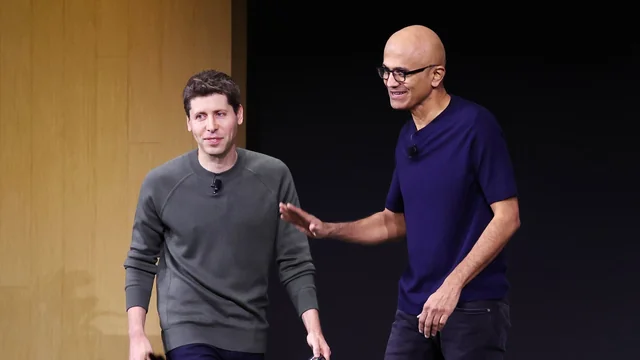The United States finds itself at a crossroads as President Donald Trump embarks on his new administration. From controversial pardons to ambitious technological projects, the implications of these actions will play out across the nation.
Joe Biden made headlines with his set of preemptive pardons just before leaving office. These pardons were granted to members of the January 6 committee, former military leaders, government officials, and even family members. Critics quickly condemned these pardons as politically motivated moves designed to shield individuals from potential investigations by Trump’s administration.
The lack of evidence for wrongdoing among those pardoned has fueled accusations that Biden’s actions create an appearance of corruption, affirming Trump’s narrative that politics operates as an elite protection racket. Democratic lawmakers expressed disappointment over Biden’s decisions, arguing that they undermine the integrity of the presidency and set a troubling precedent for future administrations.
With Trump sworn in as the 47th President of the United States, he wasted no time in making headlines. His inauguration was marked by controversy as he signed executive orders aimed at reshaping key aspects of American policy. Among these orders were moves to end birthright citizenship and halt offshore wind expansion—actions that drew immediate backlash from various advocacy groups.
During his inaugural speech, Trump promised massive national success and to end foreign wars, signaling a shift towards an America-first agenda. He also extended pardons to several individuals involved in the January 6th insurrection, further polarizing an already divided nation.
The presence of major tech moguls during Trump’s inauguration hinted at a burgeoning partnership between Silicon Valley and Washington D.C. Notably absent from this gathering was Elon Musk, who had previously been one of Trump’s closest allies. Musk’s absence raised eyebrows amid ongoing tensions between him and other tech leaders regarding their commitments to AI development.
One of Trump’s most ambitious initiatives is the Stargate project—a $500 billion endeavor aimed at building essential data centers and computing infrastructure for artificial intelligence development. Funded jointly by OpenAI, Oracle, and Softbank, this project represents a significant investment in technology that could reshape various industries.

However, Musk’s public criticism of Stargate has added an unexpected twist to this narrative. After OpenAI announced its immediate deployment of $100 billion for Stargate development on X (formerly Twitter), Musk retorted with skepticism about their financial capabilities. His comments sparked a heated exchange between him and Sam Altman, CEO of OpenAI, highlighting underlying rivalries within the tech sector.
While Altman attempted to maintain a conciliatory tone in response to Musk’s jabs, it became evident that tensions were simmering beneath the surface. Microsoft CEO Satya Nadella weighed in on the spat with a quip about his own company’s $80 billion investment in Azure cloud computing—underscoring how competition among tech giants continues to shape business strategies in an increasingly interconnected world.
One of the most talked-about actions taken by President Trump was his decision to pardon Ross Ulbricht, the controversial founder of Silk Road. Ulbricht was sentenced to life in prison in 2015 for creating and operating an online marketplace that facilitated the anonymous trade of illegal goods, primarily drugs. Dubbed “Dread Pirate Roberts,” Ulbricht’s Silk Road was described by law enforcement as the “most sophisticated and extensive criminal marketplace” on the internet.

Ulbricht’s supporters have long argued that he was wrongly convicted and that Silk Road served as a platform for free market principles and privacy rights. They contend that while illegal activities occurred on the site, it also fostered discussions about cryptocurrency and digital privacy. The pardon has been seen as a significant victory for libertarian advocates and crypto enthusiasts who view Ulbricht’s case as emblematic of government overreach.
However, the implications of this pardon are complex. Critics point to the six drug overdose deaths linked to Silk Road and allegations that Ulbricht solicited murders-for-hire—though no evidence confirmed those murders were carried out. Trump’s decision to pardon Ulbricht has raised questions about accountability in cases involving illegal activities and whether such pardons undermine law enforcement efforts.
In addition to his focus on technology and pardons, Trump’s administration has ramped up immigration enforcement efforts across sanctuary cities in America. Federal law enforcement and ICE agents arrested nearly 500 undocumented migrants wanted for outstanding crimes in cities like New York City and Boston.
New York Attorney General Letitia James responded firmly against these actions, emphasizing that local law enforcement cannot be compelled to assist federal agents in detaining immigrants unless they are involved in serious criminal deportations. Mayor Eric Adams echoed this sentiment by encouraging vulnerable communities not to go into hiding but rather seek help when needed.
The crackdown on undocumented migrants has reignited debates over immigration policy in America—particularly concerning sanctuary cities’ roles in protecting immigrant populations from federal intervention. As local leaders push back against federal enforcement measures, it remains unclear how these tensions will evolve under Trump’s administration.
America is at a pivotal moment filled with uncertainty and division, as President Trump embarks on his second term with bold promises and contentious policies. The pardons of figures like Ross Ulbricht raise questions about justice versus freedom, while Biden’s preemptive pardons highlight concerns over political accountability. Stargate shows both innovation potential and rivalry in Silicon Valley—a landscape where alliances can change quickly based on personal interests or public perceptions. Immigration enforcement efforts reveal deep-seated divisions within society regarding how best to approach issues surrounding undocumented migrants.
What a week this was.










